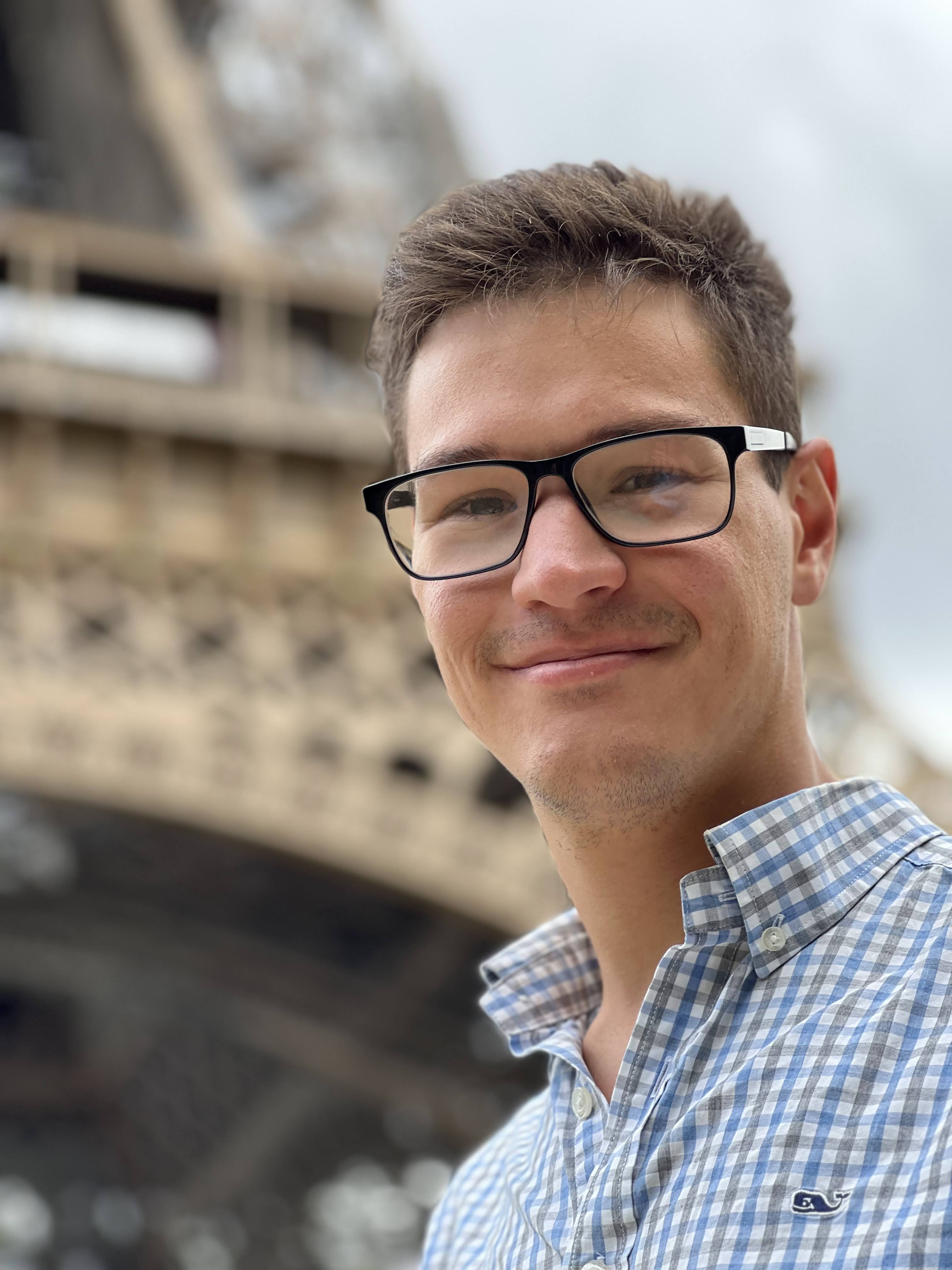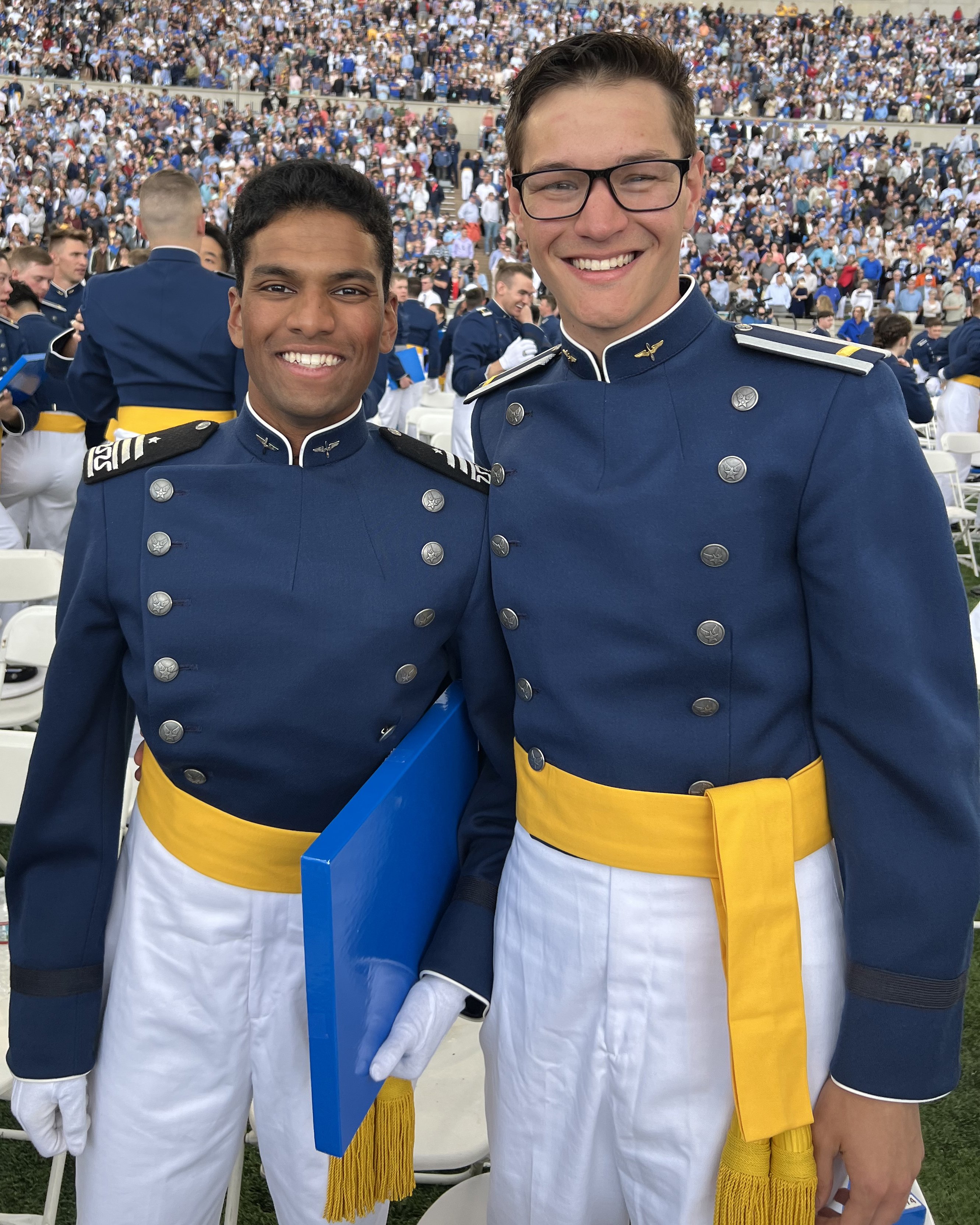Wings of Innovation: AFIT Civilian Institution Student’s Cutting-Edge Insect Flight Research
By Katie Scott, Air Force Institute of Technology
Posted Monday, July 01, 2024

Second Lt. Matthew LaRosa is an electrical engineering graduate student at Duke University, North Carolina, through the Air Force Institute of Technology’s Civilian Institution Programs. As part of his master’s degree, LaRosa is working on a cutting-edge research project with Georgia Tech studying the agility, robustness and energy-efficiency of insect flight.
Raised in Culpeper, Virginia, LaRosa’s exposure to the military came through a friend’s invitation to visit him at the U.S. Naval Academy. His choice to attend the U.S. Air Force Academy was fueled by a desire to serve a cause greater than self-interest. His commitment was further solidified by the camaraderie and sense of purpose he witnessed.
“Having people that are all on your team that you can trust is really what influenced me to look at joining the military,” said LaRosa.
Upon joining USAFA, LaRosa harbored aspirations of pursuing either a career in cyber or aviation. However, his stint as a soaring pilot instructor honed his skills and instilled in him a deep appreciation for the intricacies of flight.
“I learned everything about flying when I got to the Academy,” said LaRosa. “In the fall of 2020, I did three flights and then took the upgrade course to be an instructor. I spent the next two years of my time at USAFA teaching other cadets how to fly.”

Second Lts. Suhas Jeevanand and Matthew LaRosa at the U.S. Air Force Academy’s graduation ceremony in Colorado Springs, Colo., May 25, 2022. (Contributed Photo)
An early interest in artificial intelligence led LaRosa to study data and cyber science. While at USAFA, he had the opportunity to work with Maj. William Caballero, assistant professor of mathematical sciences. Together they worked on a research project with Dr. Vahid Tarokh, Rhodes Family professor of electrical and computer engineering at Duke University. That interaction persuaded LaRosa to continue his education at Duke to study under Tarokh.
Armed with a full tuition scholarship, LaRosa transitioned to Duke University for his master's degree in electrical engineering. His thesis research is part of a Multidisciplinary University Research Initiatives Program led by Dr. Simon Sponberg, Dunn Family associate professor of physics and biological sciences at Georgia Tech, researching the intricate interplay between insect perception and action in complex environments.
“These insects are a lot more efficient flying devices than the best airplanes known to mankind,” said Tarokh. “With a little bit of energy they can fly through tight spaces. They are very maneuverable and perceive the environment better than any machine learning algorithm.”
Working closely with Tarokh and Sponberg, LaRosa uses machine learning to understand the principles and strategies of rapid decision making in complex environments.
“It is not a situation where an animal sees 50,000 images of exactly the same threat and then figures out how to classify that image from a bunch of other images, which is how a lot of our AI classification algorithms work,” said Sponberg. “Insects are very good at making decisions from very few exposures, even innately, from the evolution of their integrated circuits, to be able to make the right kind of decision and parse out from their complicated environment what they need to pay attention to. They do that with a combination of strategies that we're trying to understand better.”
The research provides insights into how biological systems can inform technological innovation, particularly in the realms of autonomous robotics and sensor fusion. As well as developing a better understanding of how humans can efficiently and reliably process vast amounts of complex information for rapid decision making.
“I see it as a sensor fusion issue,” said LaRosa. “For example, with the F-35, we can collect tons and tons of gigabytes of data from all these different sensors, but the hard part is determining what of that information is useful when trying to identify where the threat is. What is interesting with these insects is that they have a very advanced neuro-system relative to their size, so they can process a lot of information without having a lot of neurons. If we can understand how they are processing all this information with the limited amount of processing power they have, then we should be able to apply that same principle to aircraft sensors.”
LaRosa’s academic advisors praise his contributions to the research project.
“Matt has a very good intuition on what the constraints are and he appreciates the applicability of the research,” said Tarokh.
Sponberg added, “Matt knows how to ask the right questions and interface with the data in order to very quickly align his modeling and the assumptions with what is happening on the experimental side.”
Beyond his academic pursuits, LaRosa's commitment to service extends to his community engagement, where he channels his passion for woodworking into mentoring youth through a local non-profit.
“I actually taught myself wood working in back in high school through ‘YouTube University’,” said LaRosa. “Now I volunteer to teach 7th through 12th graders how to make things with wood starting with napkin holders and progressing to coasters and clocks. When the students get to Level 3, we let them make pretty much whatever they can think of. We have had some people make desks for their room. They come up with designs and then we make it happen.”
LaRosa is set to graduate from Duke in December 2024. He hopes to extend his time there to further his research and earn a doctoral degree, but if not, he will start pilot training at Shepherd Air Force Base, Texas.
LaRosa’s journey from USAFA to Duke University, epitomizes the intersection of academia and military service, culminating in research with implications ranging from enhancing aircraft sensor systems to improving decision-making processes in complex environments.